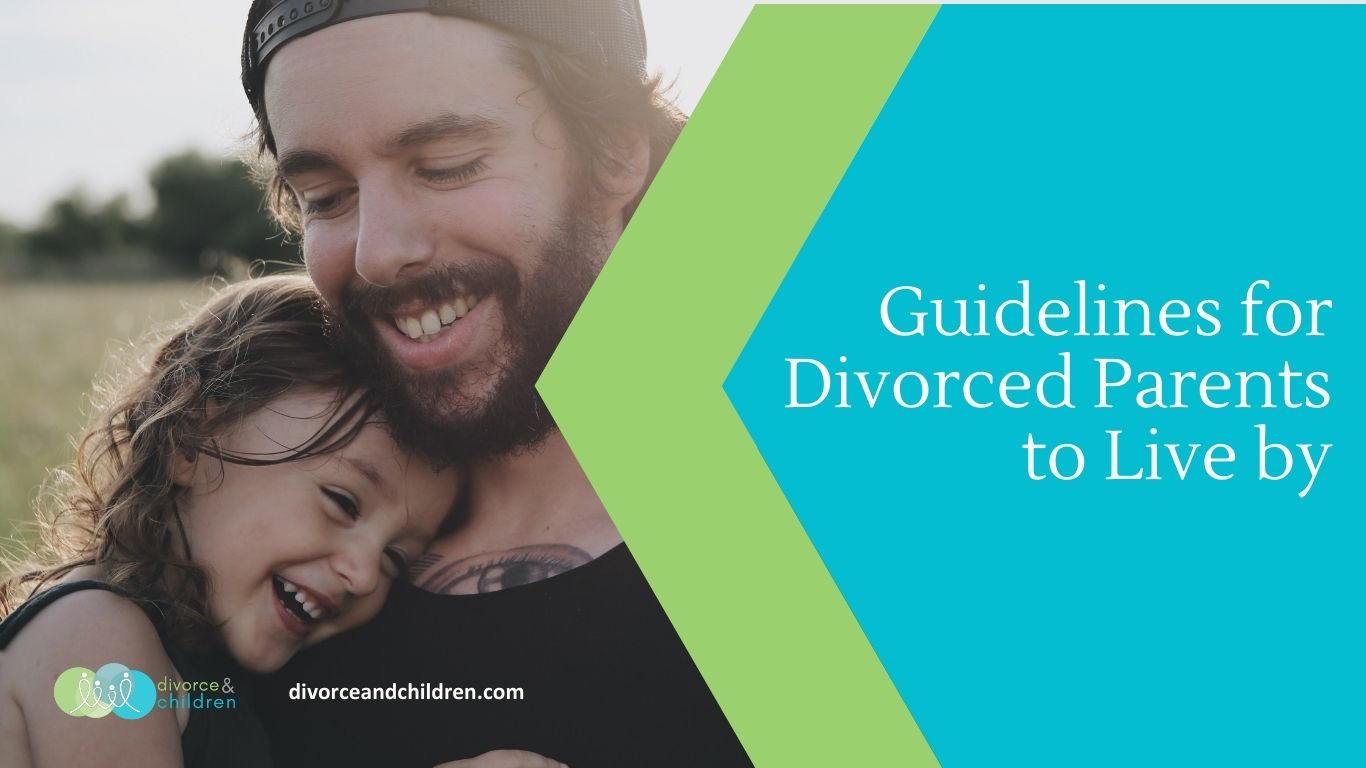Guidelines for Divorced Parents to Live by

The Do’s
Do love your children as much as possible.
Show them your love through words and actions.
Do tell your children divorce is not their fault.
Keep in mind, they’ll need to hear it more than once.
Do reassure your children that they will be safe.
Let your kids know that both parents will continue to provide for them to the best of their ability.
Do let your children know it is okay to love both Mom and Dad as they did before the divorce.
Reassure kids that the love they have for both parents doesn’t have to change.
Do support your children’s relationship with their other parent.
Inform the other parent of special events, school functions or extracurricular activities whenever possible.
Do listen to your children.
Respect the fact that your kids feelings may be different than your own. Do your best to listen without judging, fixing or trying to change how they feel.
Do let children know it is okay to express those feelings.
Remember your children will need help learning safe and healthy ways to express their feelings. Be sure to provide them with options that work for your family.
Do reinforce that children are members of two homes.
Children should not be made to feel guilty or as if they have to choose which is their “real” or “better” home.
Do help children feel like they have a home with both parents regardless of the amount of time spent with each parent.
Make sure children feel like they belong and have a place in each home. Even if it is only a section of a room, together with your kids create a special space for them to keep their things. Giving children the chance to offer input or add their own touches can be helpful.
Do provide your children with discipline, as well as love.
Children still need parents to provide structure and limits especially during difficult times.
Then the Don’ts…
Don’t badmouth, judge or criticize your child’s other parent.
Children literally view themselves as half Mom and half Dad. When you attack the other parent, you attack your child. Other significant adults in your child’s life (i.e. stepparents, grandparents, friends or extended family members) should also follow the same guidelines.
Don’t expose your children to the adult details of your divorce.
Rarely is it ever in the best interest of children to be exposed to information regarding court matters, child support, financial concerns or intimate details regarding your divorce. Typically children feel very confused and caught in the middle when parents expose them to adult issues.
Don’t use your children as messengers or spies.
Be responsible for finding some way to communicate with your ex-spouse.
Don’t fight fire with fire when the other parent says or does damaging things.
Trying to set the record straight or giving children “your side of the story” continues the cycle of kids feeling confused or caught in the middle. Instead choose to be supportive of your children by using statements such as “I’m sorry you had to hear that” or ” How do you feel about what Dad/Mom has said?”
Don’t make your children responsible for making adult decisions.
Kids shouldn’t be asked to make decisions about parenting schedules, who they live with or how to handle household matters.
Don’t allow your children to become your best friends or confidants.
Children should not feel responsible for their parent’s emotional well being. Make sure you develop a supportive network and find other caring adults to share your feelings with about the divorce.
Don’t place blame when children ask why the divorce happened.
Children should not be placed in the position of judging or taking sides.
Don’t withhold visitation if child support is unpaid or fail to pay child support if the other parent is withholding visitation.
Both actions are illegal and are viewed as separate issues by the court.
Don’t try to buy your child’s love or show up the other parent.
While children enjoy gifts, what matters most is the time you spend with them not for the things you buy them.
Don’t lose your sense of humor.
It comes in handy during stressful times
Want to connect with other parents? Consider joining our community on Instagram, LinkedIn and Facebook.





